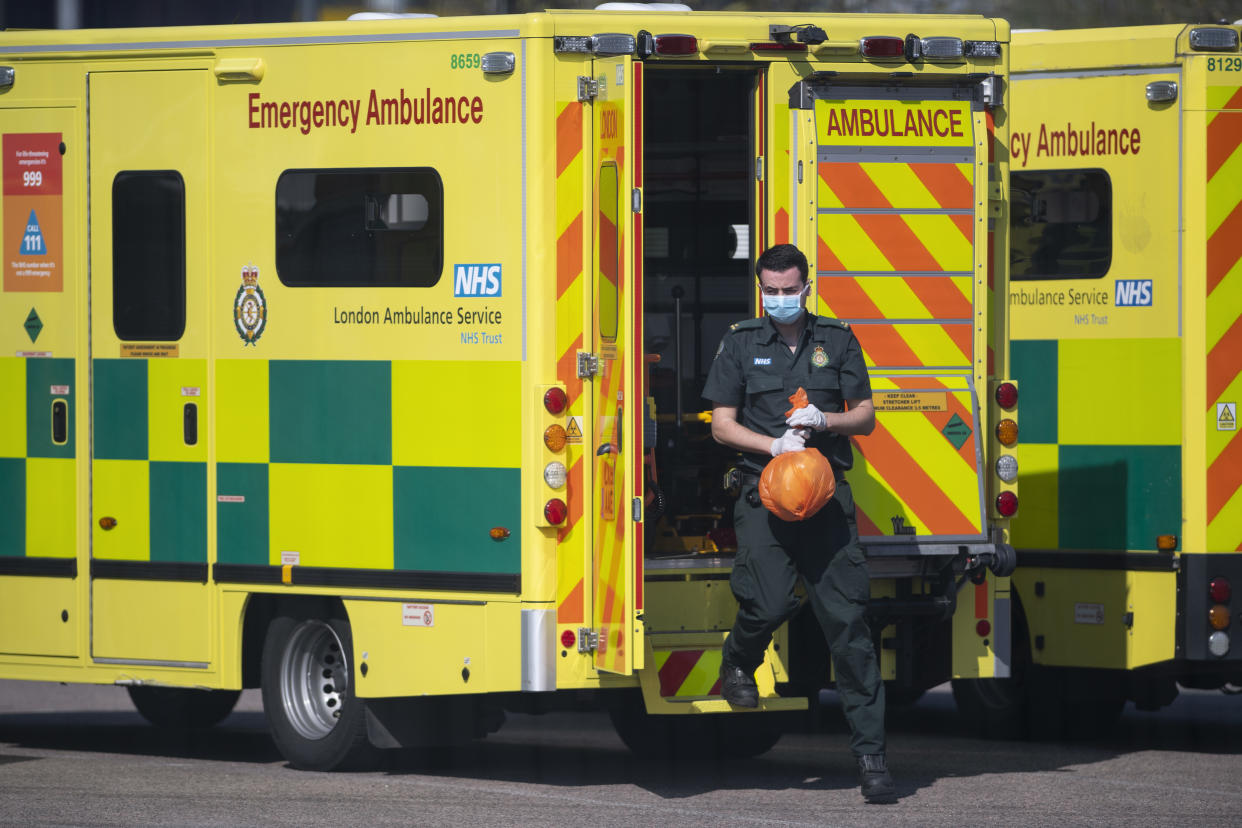Coronavirus: England death toll passes 10,000

The number of coronavirus deaths in England has passed 10,000 as the UK’s death toll rose to 11,329.
Public Health England said on Monday that a further 667 people have died, bringing the total number to 10,261.
It comes a day after the UK death toll also passed 10,000.
Of the 667 COVID-19 deaths in England, 118 happened on Sunday while 537 were between 1 April and Saturday.
Latest coronavirus news, updates and advice
Live: Follow all the latest updates from the UK and around the world
Fact-checker: The number of COVID-19 cases in your local area
6 charts and maps that explain how COVID-19 is spreading
The remaining 12 deaths occurred in March. Reporting delays mean confirmation can often come days, or weeks, after a death.
Meanwhile, there were a further 15 deaths in Wales (384 in total) and nine in Scotland (575 in total).
The Department of Health’s latest official death toll for the UK – which differs from figures provided by the individual health bodies for England, Scotland, Wales and Northern Ireland – was 11,329 on Monday.
This was an increase of 717 from Sunday’s official death toll of 10,612.
After a record daily increase of 980 deaths on Friday – moving down to 917 on Saturday and 737 on Sunday – Monday’s increase of 717 would appear to suggest the death rate is slowing down.
However, Scottish first minister Nicola Sturgeon cautioned that death figures are often lower after the weekend.
One expert also said the bank holiday weekend could have “exacerbated” volatility in the daily figures and that it was too early to determine any trend in death rates.
University of Oxford Prof James Naismith said: “Although the number of deaths in hospital announced today is lower than would have been expected were deaths still following an exponential pattern, the bank holiday and the weekend could have exacerbated the known volatility in these numbers.
“We will have to see further data before making any firm judgment as to trends.”
The number of confirmed cases in the UK has also risen to 88,621, the sixth highest in the world.
It comes as Boris Johnson’s official spokesman confirmed the prime minister tested negative for COVID-19 after surviving his own coronavirus ordeal last week.
Johnson left hospital on Sunday, saying the NHS saved his life and praising nurses Jenny McGee from New Zealand and Luis Pitarma from Portugal for standing “by my bedside for 48 hours when things could have gone either way".
Pressed on how ill the PM was, the spokesman said: “As we set out, his condition did worsen over the course of last Monday afternoon and he had to be moved to the intensive care unit.
“Now, clearly, if a person is moved to intensive care, that means that they are requiring a significant level of specialist treatment.
“So, I think it was clear from the moment the PM was moved to intensive care that his condition had worsened.”
Meanwhile, concerns have been raised over a shortage of personal protective equipment (PPE) in some hospitals.
Read more: Will UK end up with most coronavirus deaths in Europe?
Chris Hopson, chief executive of NHS Providers in England, said on Monday: “Nearly all of that material is flowing in the way that trusts would like.
“The bit where there’s a particular problem was gowns, where we know that over the last 72 hours some trusts have run critically low on gowns.
“No trust, as far as I’m aware, has actually run out but some of the stocks are very very low.”
The Ministry of Defence, meanwhile, has also deployed 200 military personnel across the country in support of ambulance services.
Downing Street said they would carry out a variety of roles including driving vehicles, taking calls, manning response centres and supporting paramedic crews.

 Yahoo News
Yahoo News 

